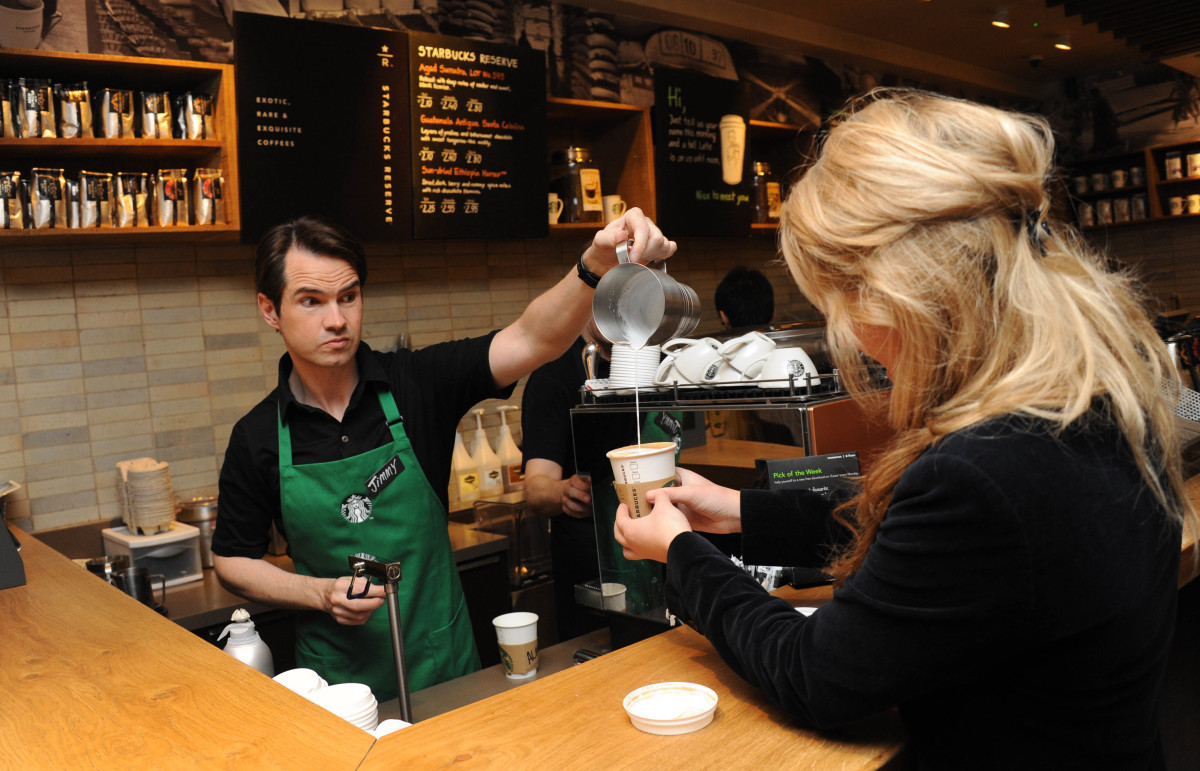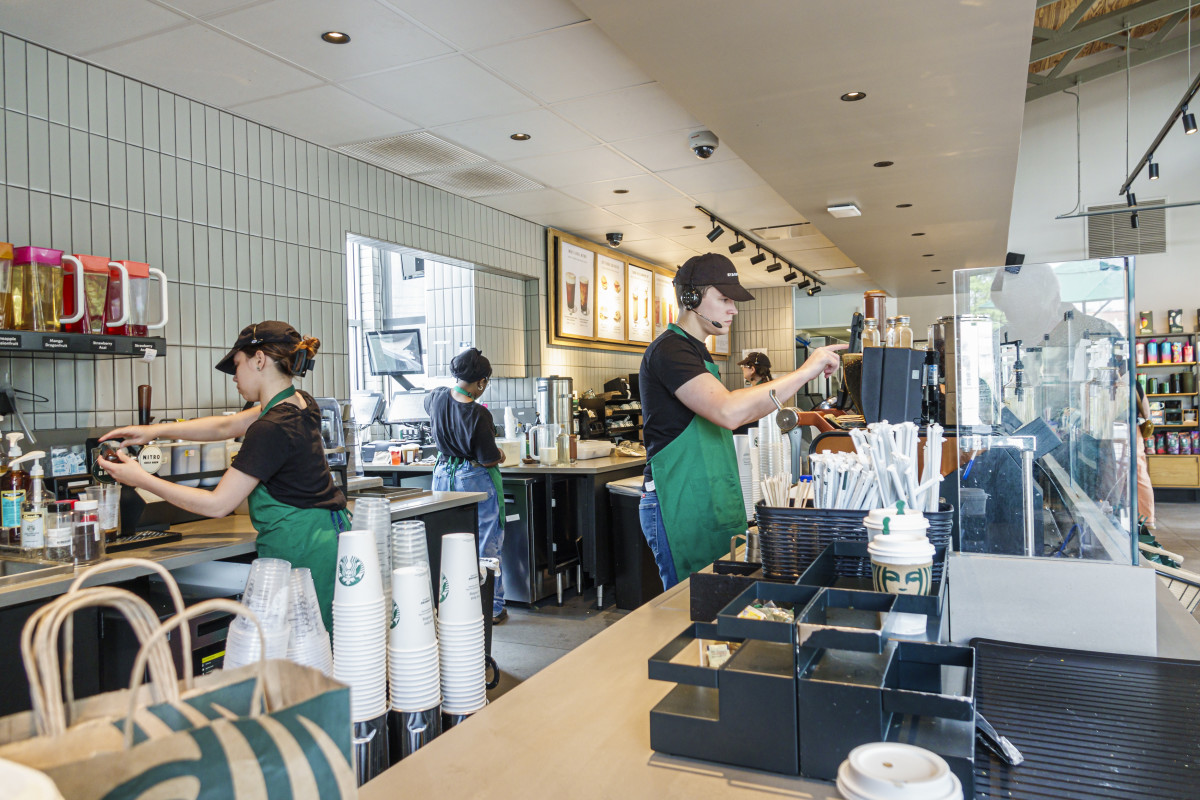
Starbucks (SBUX) is slamming its foot down on its return-to-office policy by issuing a stern warning to employees who fail to adhere to the new rule.
In January last year, Starbucks began to require its corporate employees to work from the office three days a week. Just last month, Starbucks CEO Brian Niccol emphasized during his first staff address that in order for the company to be successful, employees need to be working “more often than not.”
💰💸 Don’t miss the move: SIGN UP for TheStreet’s FREE Daily newsletter 💰💸
“My point of view is we should be together as much as possible,” said Niccol in his address. “You need to figure out where you need to be to get your job done, then do that. We’re all adults here.”
Related: Starbucks CEO has tough words for employees on return to office
Now, Starbucks is doubling down on that belief by threatening its employees with job termination if they fail to follow the company’s return-to-office mandate, according to a recent memo, which was obtained by Bloomberg.
The company is reportedly planning to roll out a “standardized process” that involves having workers face consequences that are “up to, and including, separation” for not following the mandate.
Starbucks’ return-to-office mandate applies to about 3,500 corporate employees. Workers who suffer from disabilities that involve mental, physical or sensory impairment qualify to apply for exemption from the policy.

In an emailed statement to TheStreet, a Starbucks spokesperson claims that despite its latest efforts to enforce the policy, its expectations for its hybrid workers have not changed.
“We are continuing to support our leaders as they hold their teams accountable to our existing hybrid work policy,” said the Starbucks spokesperson. “We’ve made updates to our workspaces to make sure they work for the teams who use them.”
This is not the first time a company has threatened to fire its employees for not following its return-to-office mandate. Last year, Amazon (AMZN) reportedly instructed its managers to hold private conversations with employees who refuse to work in the office three days a week. If an employee failed to comply after several discussions, managers were given the green light to fire them.
Related: Amazon’s new return-to-office mandate is starting to backfire
Earlier this year, Dell (DELL) also threatened to withhold promotions and job security from employees who failed to work a minimum of 39 days in the office each quarter. Some Dell employees, however, ignored the company’s mandate, claiming they are not concerned about not getting promotions due to a lack of job opportunities at the company.
Starbucks’ latest efforts to enforce its return-to-office policy come after Niccol faced criticism on social media for not being required to relocate to the company’s headquarters in Seattle, Washington, after officially joining the company on Sept. 9.
More Labor:
- Microsoft exec sends stern warning to staff about return to office
- Amazon’s new return-to-office mandate is starting to backfire
- Boeing delivers hard-nosed message to employees amid strike
His contract states that he will instead commute via private jet to the office to fulfill the company’s return-to-office mandate requirements and will even have a “small remote office” in his California home where he will have a choice to hire an assistant for the office.
As Starbucks puts more pressure on employees to abide by its mandate, return-to-office policies are adding more costs for workers across the country.
According to a recent survey from Yelp, consumer interest in dry cleaning increased by 30% after many U.S. companies rolled out return-to-office mandates in 2023, since many people will have new wardrobe needs. Also, there has been a 19% increase in consumer interest in child care/daycare and a 26% consumer interest spike in public transportation.
Related: Veteran fund manager sees world of pain coming for stocks




.jpg?w=600)


